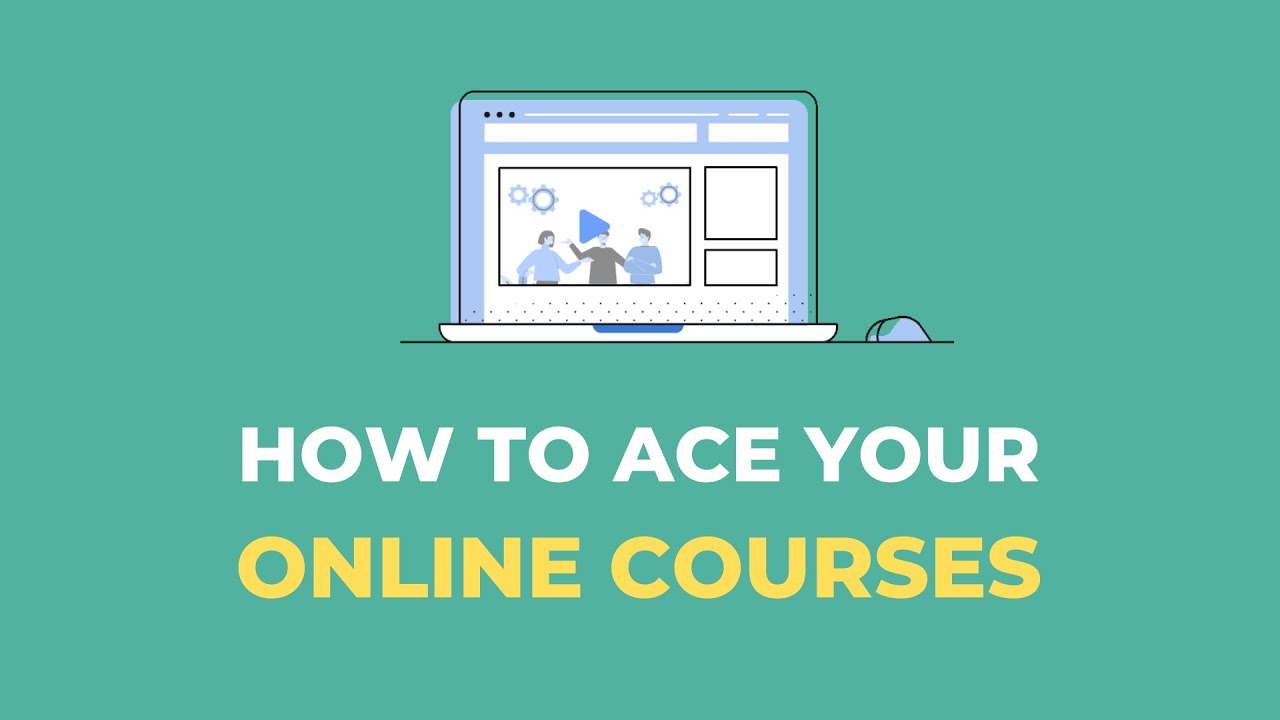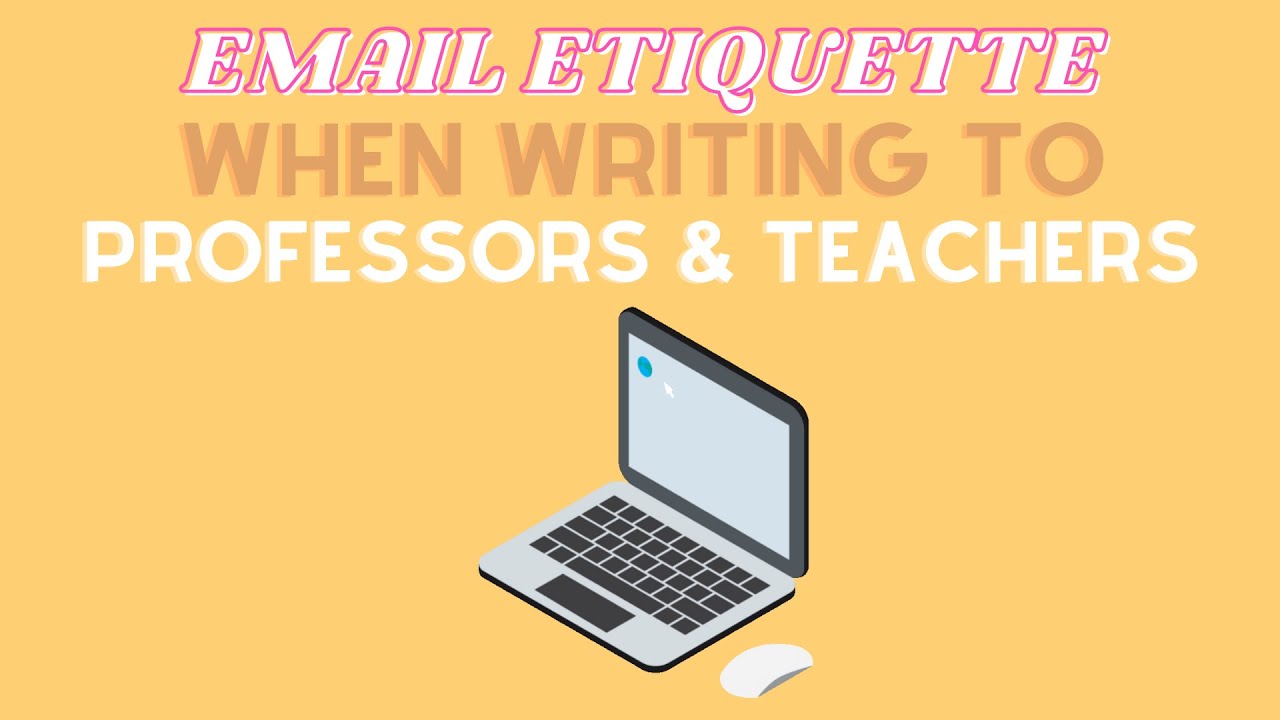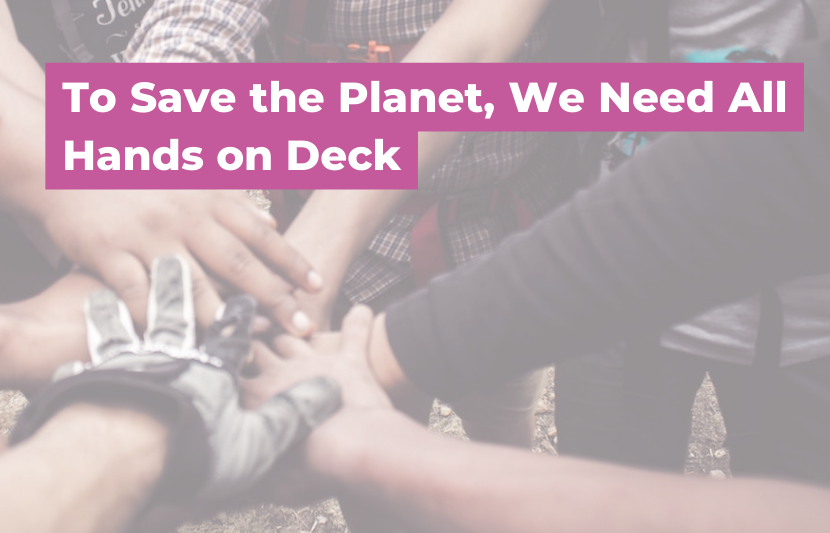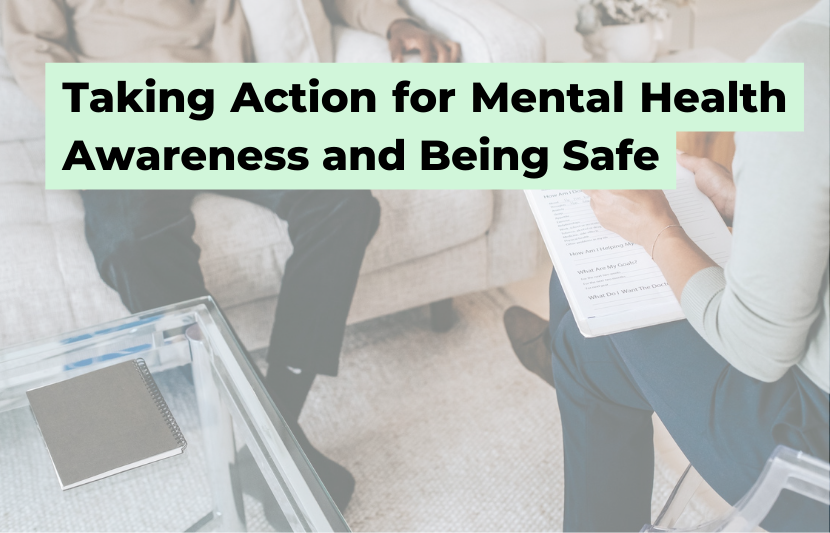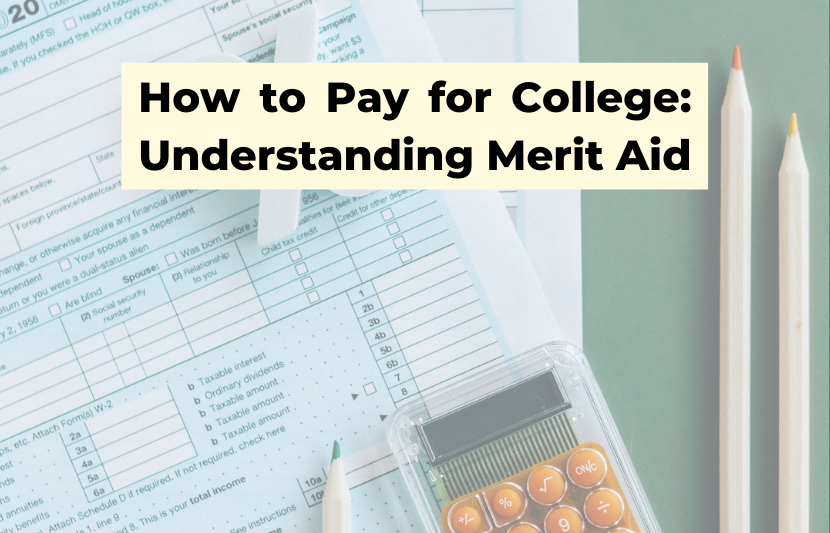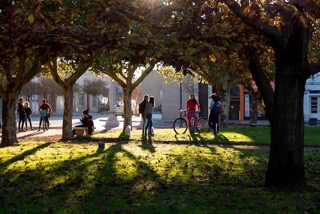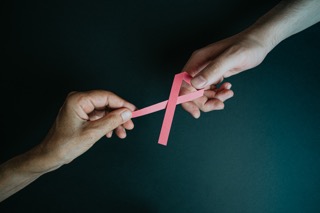In this episode of TUN TV, Dr. Crystal Rose interviews Amelia Thompson, founder and president of RenewToday, an organization that drives social impact, to discuss entrepreneurship via a social justice pathway.
Dr. Rose: Welcome to The University Network TV where we scan the globe to give students, their families, and educators the very best tips for student success. I’m your host today, Dr. Crystal Rose. On today’s show, we’re featuring a series, “I Want to Be An Entrepreneur,” where we look at unsuspecting ways education may take an entrepreneurial approach.
Entrepreneurship is an ever-growing field that is often not talked about in schools, but more and more people think it should be and for good reason. Entrepreneurship can not only make the education process more enlightening but more engaging, as well, as it focuses on one’s passion and it builds skills like collaboration. And speaking in public exposes students to solve real-world problems using out-of-the-box thinking, spurred by their curiosity, and creative measures.
For today’s example of entrepreneurial application, we’re exploring the field of social justice with Amelia Thompson of RenewToday, one of The University Network’s community members and a Harvard grad, to explore social justice as an entrepreneurial pathway: what it looks like, why it makes sense, and how you can engage in this, as well?
Amelia, welcome.
Thompson: Hi, Dr. Rose. Great to be with you.
Dr. Rose: Thank you so much for being here today.
Thompson: My pleasure. Thanks for having me.
Dr. Rose: Now, to start off, if someone were to ask what social justice is, how would you define that?
Thompson: I want to define, or start by defining, social justice as any response to mistreatment that’s directed toward groups of people or communities. Currently, we see a number of campaigns that are in response to gun violence or the mistreatment that Asian Americans experience here as a result of the pandemic. Also, racism, as an example of a response to the injustice that we can understand as social justice.
Dr. Rose: That’s a really good term. So it’s something that is in response to what we’re seeing, what we’re living today, where there’s some needs, and it sounds like they’re also complex problems. So, how does social justice relate to the entrepreneurial pathway or entrepreneurship?
Thompson: Sure. Actually, I love the language that you’re using around needs because, typically, when we think about entrepreneurship or business or innovation, we think about a market need or a consumer need. And in a similar way, social justice is in response and serves to meet the needs of communities. So, we can think about our social, our passions and our interests, and our desires to respond to injustices in ways that actually translate to meeting greater needs. I think of them as very consistent.
Dr. Rose: Wow. I really like how you juxtapose on one hand the business but on the other hand the real-life person’s experience. You mentioned some terms. For example, what’s happening with gun violence or what’s happening with Asian American violence? Are there some other concrete examples that you’ve seen taking this a social justice issue and so really sort of following an entrepreneurial pathway?
Thompson: Sure. I’d be happy to talk about my own experience and the journey. I wouldn’t have described it this way when I started but now, in hindsight, I look back and I see that my interest and passion for social justice has become an entrepreneurial sort of pursuit but also a career.
A number of years ago, actually six summers ago – my birthday happens to fall during the summer – instead of hosting a birthday party, I invited friends to bring over menstrual hygiene products that we then use to create care packages that were given to an organization in New York City, where I’m based, that helps girls transition out of sex trafficking. So, the social justice needs there was my understanding that girls who face economic challenges may not be able to afford their own menstrual hygiene products.
I really just hadn’t imagined much more beyond inviting friends to be a part of celebrating my birthday that way. I had no idea that this was a part of a larger global issue – a global social justice issue – and the stigma that women and girls face when they menstruate here, locally and also around the world. There are people who experience mutual stigma across the world but also in very specific ways in terms of a lack of access to appropriate supplies. But, also, it’s uncomfortable in certain instances to even talk about menstruating. It’s not viewed as a natural bodily function in certain communities and contexts.
There’s a lot of stigmas associated with the process, and people who are menstruating can be mistreated and even shunned during that period of time. So what started out as a response to what I saw as injustice has become a career. We actually started this campaign called, We Deliver Period. It’s a part of a large nonprofit that I’m responsible for. And we’ve gone on to host a conversation, for example, at the United Nations around issues of administration and how girls in low-income countries often drop out of school once they reach puberty. You mentioned my attendance at Harvard, but I wrote about this work in my admissions essay. So my interest and passion for advocating for groups in need have indeed become a career.
Dr. Rose: Fantastic. Wow. That’s really a very strong example of how it started off in one way but, really, you grew with the opportunities that really opened up along the way. That to me is an entrepreneurial pathway at its best, personified. Thank you for bringing us to that. And it even opened doors for you to study, where you were able to deepen your understanding in the field later on in graduate school. I also liked to hear that you were able to go to the United Nations and the United Nations has been a part of this, as well.
If you look back in history, was there someone in history that inspired you along this pathway? And do you know of any people – what comes to mind if you look at social justice or entrepreneurial social justice from a historical perspective?
Thompson: Absolutely. When I think about who I was inspired by in elementary school, I remember having a guest speaker who joined us one day. I don’t remember his profession and I don’t remember what he talked about, but I believe it was career day or something of that nature. But once he learned of my name, Amelia,, he said, “That means you’re born to soar.” I didn’t fully understand what that meant, but I knew it was a reference to Amelia Earhart and I knew that she was a pioneer.
But I became more interested in who she was. Certainly, there’s still a lot of mystery around her disappearance. But the bravery and courage that she demonstrated being a woman and a pilot during that era and to have made a trans-Atlantic flight – it’s really incredible. And she’s certainly one of the people who inspire me to think about what it means to broaden pathways for others and to also accomplish things that may defy expectations – whether those are social expectations or expectations that are associated with someone’s background or upbringing.
So in many ways, I’m inspired by her. And that’s a seed that was planted that day by the guest speaker who encouraged me to think about soaring.
Dr. Rose: I love that. And bringing in Amelia Earhart at that is really apt as we look back. Now we look forward, what do you say the future of social justice entrepreneurship looks like?
Thompson: Well, I love, I’m so encouraged by seeing so many young people or Gen Zers – I don’t know if they define themselves as Gen Zers – but as millennials, looking back and seeing so many younger people take on causes of any group that’s marginalized, any group that experiences discrimination, and seeing how they’re using and leveraging social media, their own creative ingenuity to not only respond but also invite others into responses.
What I always encourage, and have been inspired by, is just knowing that something small, seemingly small, can grow into something really tremendous with commitment, with the right relationships and with tenacity. So, I believe the future of social justice work is intergenerational. I think it’s being led by younger generations but is also being supported by older generations. And the wisdom that we learn across generations, I think, is more creative than we can imagine. It’s more innovative than we can imagine now. I also really believe that it’s going to be more impactful than we can imagine.
Currently, there’s a lot of, and rightly so, outcry and attention being drawn to the need for gun control. And the massacre in Uvalde and in Buffalo are just two instances of where we see just the need for this. And so, I just believe that not only are we going to see greater responses to these sorts of injustices, but we are also going to see change. That’s what I’m hoping for. I’m hoping for the outcries to result in legislative changes – and in safer communities, in that specific instance in terms of campaigns that support gun control. Overall, I believe the future of the work will see even greater change and impact.
Dr. Rose: Wow. That’s a great picture you painted for us. This is a how-to video. How can students, if they want to take more of an entrepreneurial approach to social justice, do that? What do you say it takes to get involved?
Thompson: Yes. Actually, I remember, a number of years ago, this idea came to mind. It’s in part inspired by my faith perspective, and it’s this idea that there’s a blessing in what seems to be inadequate for any response to injustice, any rallying cries that are rooted in social justice. We are going to identify what we think of as solutions even though that word sounds a bit too complete. But I’ll use it because I don’t have another at the moment. We will identify solutions that will inevitably be imperfect and inadequate in fully responding to injustice. And yet, we are charged to take those up. We shouldn’t let the thought of inadequacy or imperfection keep us from responding to injustice.
So, in terms of how to respond, I think one of the first things I think about in terms of the blessing of what appears to be inadequate is to decide to do something. If you see an area of injustice that you’re inspired to respond to, don’t let the sort of magnitude of it, or even the sense of distance from your own personal life, keep you from doing something. You can sign a petition. You can talk. You can research about it. You can talk to friends who might also want to know more about that issue. You can decide to do something is one of the first things I’d say.
The second thing I would encourage is to get organized. And organized might mean thinking through who in your personal network might be a resource, might have information or might be closer to the issue. And so, you can reach out to them, whether it’s a friend or family member, someone at your school. So, getting organized allows you to better make sense of the resources that you have available to you. And relationships are a tremendous resource.
And also your time – when we think about organization – how are you going to fit this work into your time? Whether you have class demands or family obligations and commitments? Think about how you can organize your time. Summer is coming up. For some of us, summer break has already started. And so, summer might be a great time to devote more time and focus on the things that we might not be able to do because of our school schedules. So, decide to do something. Get organized.
The third thing, I would say, is to expect brokenness to be a part of it. And by brokenness, I mean imperfection. You’re also going to come to a point where you might feel that you’re not fully equipped to move things forward. That’s okay. That’s a part of the service or the leadership journey. We think about what it means to lead. We think about what it means to you to serve and to be willing to help and meet the needs of others.
And so, expect things not to go well. Expect there to be challenges. Expect things to take longer sometimes than you anticipate. Also, expect that things might happen faster. So that’s part of the imperfection – not being able to gauge fully both the speed of change. sometimes faster than we anticipate, sometimes slower. And also not being able to anticipate the impact of what we do and even just showing up.
I’ve been struck by learning from friends or people I’ve encountered that just presenting an idea has inspired them and helped them broaden their own sense of what’s possible in terms of responding to injustice in society. So, expect brokenness, expect imperfection.
I would also say, as a sort of closing thought, anticipate beauty. There are going to be beautiful relationships that will be formed through taking on a social cause and pursuing it with an entrepreneurial spirit. You’ve discovered new things about yourself. You might even discover a new career path or passion project, or it might lead to an interest in another sphere.
I started out in the criminal justice field here in New York City, running a program for young people who were involved in the justice system. And I had no idea that that would lead me into education and seeing the connection between brokenness in the education system and how so many youths end up involved in the justice system. So, expect beauty in the discovery of new things about yourself, about the cause itself, about people and about what’s possible. Those are the four things that I would offer, in terms of steps.
Dr. Rose: That is absolutely fabulous. I really appreciate you sharing with us these tangible
steps that people can take, especially for students in high school who are looking for passion projects. Even students in college are looking for real-world experiences and careers. This entrepreneurial pathway just might be that measure. Thank you so much for joining us today.
Thompson: My pleasure. Thank you.
Dr. Rose: Thank you.
This interview has been edited for clarity.
For more exclusive interviews with experts who share their insight to help students succeed, check TUN TV!

